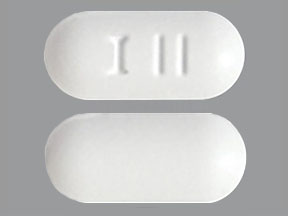
Naproxen Dr Coupons & Savings Card – Discount Prices from $17.54
My prescription
Edit
500MG, Naproxen (60 Tablet Delayed Releases)
Select pharmacy

CVS
$29.27
COUPON PRICE
Walmart
$17.54
COUPON PRICE
Walgreens
$23.71
COUPON PRICE
Albertsons
$43.09
COUPON PRICENaproxen Dr savings card
Show this card to your pharmacist
Walmart
$17.54
BIN
ID
PCN
GRP
015995
LHKPP599563
GDC
DR33
Powered by
More prescriptions for rheumatoid arthritis
More prescriptions for rheumatoid arthritis
Naproxen Dr dosage forms
Dosage Quantity Price from Per unit 500MG 60 Tablet Delayed Releases $83.57 $1.39 500MG 100 Tablet Delayed Releases $127.08 $1.27
| Dosage | Quantity | Price from | Per unit |
|---|---|---|---|
| 500MG | 60 Tablet Delayed Releases | $83.57 | $1.39 |
| 500MG | 100 Tablet Delayed Releases | $127.08 | $1.27 |
Naproxen Dr Warnings
Naproxen (Naprosyn), a nonsteroidal anti-inflammatory drug (NSAID), is associated with several important safety warnings and precautions. Understanding these potential risks is crucial for safe use. Please review the following information and consult your healthcare provider if you have any questions or concerns:
Heart Attack and Stroke Risk: Naproxen may increase the risk of heart attacks or strokes, particularly with long-term use or higher doses. This risk is heightened for older adults, individuals with heart disease, or those at an increased risk of heart disease, such as smokers or individuals with high blood pressure or diabetes. Avoid using naproxen before or after heart bypass surgery (CABG). If you experience chest pain, shortness of breath, weakness on one side of your body, or difficulty speaking, seek immediate medical attention.
Stomach Bleeding: Naproxen can cause serious stomach or intestinal bleeding, which may occur without warning. Older adults and those with a history of stomach bleeding or liver problems are at increased risk, as are individuals taking other medications that increase bleeding risk, consuming alcohol, or smoking. Seek immediate medical help if you notice symptoms such as black or tarry stools, vomiting blood, or severe, persistent stomach pain.
High Blood Pressure and Heart Failure: Naproxen may lead to fluid retention, raising blood pressure or increasing the risk of heart failure. Inform your healthcare provider if you have heart issues or are on blood pressure medication. Monitor for symptoms like unexplained fainting or chest pain during physical activity, and report these to your healthcare provider.
Kidney Damage: Use of naproxen can lead to kidney problems, especially in older adults or those with diabetes, heart failure, or dehydration. Your healthcare provider may conduct tests to monitor kidney function before and during treatment. Notify your provider if you experience changes in urination, fatigue, dry or itchy skin, low appetite, or muscle cramps.
Liver Problems: Although rare, naproxen can cause serious liver issues. Watch for symptoms such as abdominal swelling, yellowing of the skin or eyes, dark urine, or confusion. Seek immediate medical care if these symptoms appear.
Severe Allergic Reactions: Severe reactions, including anaphylaxis, can occur. Inform your healthcare provider if you have a history of allergies to aspirin or other NSAIDs. Seek urgent medical assistance if you experience hives, rash, facial swelling, or difficulty breathing.
Pregnancy and Breastfeeding: Naproxen is not recommended during pregnancy, particularly after the 20th week, due to potential harm to the unborn baby. It is also not advised for breastfeeding individuals. Discuss with your healthcare provider to evaluate safer alternatives.
Contraindications: Do not use naproxen if you have a history of asthma, hives, or allergic reactions to aspirin or other NSAIDs, or if you are scheduled for coronary artery bypass graft surgery.
For any concerns regarding naproxen use, including potential interactions with other drugs, consult with your healthcare provider to weigh the benefits and risks of treatment.
Naproxen Dr Side Effects
Common side effects:
- upset stomach
- nausea
- heartburn
- headache
- drowsiness
- dizziness
- itchy skin
Less common but important to monitor:
- bruising
- ringing in the ears
- swelling
- indigestion
- diarrhea
- constipation
- sweating
- mouth sores
- racing heart
- spinning sensation
- unusual thirst
- changes in hearing
Serious side effects:
- stomach bleeding
- vomiting blood
- severe stomach pain
- heart attack symptoms
- stroke symptoms
- heart failure symptoms
- high blood pressure
- worsening liver problems
- kidney issues
- serious allergic reactions
- serious skin reactions
Naproxen Dr Interactions
Interactions with high risk of serious adverse effects and should be avoided:
Interactions with moderate risk that may require dose adjustment, closer monitoring, or timing changes:
- Clopidogrel
- Warfarin
- Apixaban
- Ibuprofen
- Celecoxib
- Diclofenac
- Amitriptyline
- Citalopram
- Duloxetine
- Prednisone
- Dexamethasone
- Furosemide
- Hydrochlorothiazide
- Captopril
- Lisinopril
- Valsartan
- Losartan
Interactions with low risk that usually do not require a change in therapy:
